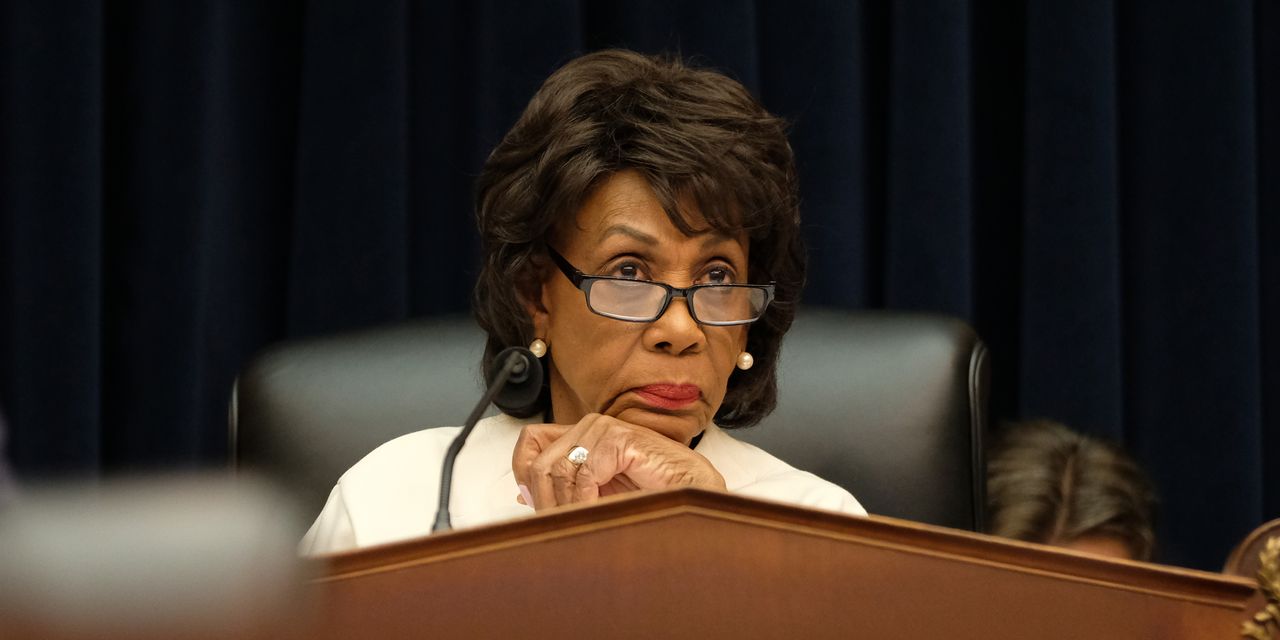
Congressional Democrats voiced their skepticism Thursday toward a new type of banking charter that would grant some privileges to financial-technology and cryptocurrency companies that national banks enjoy, without subjecting them to the same degree of regulatory oversight.
“State regulators, community banks and credit unions have raised alarms about how new entities, including big tech firms, are receiving unconventional bank charters and offering bank products and services while evading regulations most banks, including…
Congressional Democrats voiced their skepticism Thursday toward a new type of banking charter that would grant some privileges to financial-technology and cryptocurrency companies that national banks enjoy, without subjecting them to the same degree of regulatory oversight.
“State regulators, community banks and credit unions have raised alarms about how new entities, including big tech firms, are receiving unconventional bank charters and offering bank products and services while evading regulations most banks, including community banks, must comply with,” said Rep. Maxine Waters of California, the chairwoman of the House Financial Services Committee, during a subcommittee hearing on the topic Thursday morning.
Read more: Opinion: How Big Tech’s disruption of finance is a threat to us all
“The [Office of the Comptroller of the Currency] has overstepped its authority, pretending that laws signed by Abraham Lincoln were intended to create charters for fintech or cryptocurrency,” Waters, a Democrat, added.
Under the Trump Administration, the OCC — the regulatory agency within the Treasury Department responsible for granting national banking XLF charters — developed a new fintech banking charter that would enable fintech companies to offer lending and payment products, without taking deposits or FDIC insurance or being overseen by state banking regulators. The agency was first created during the Lincoln administration, when the national banking system was established.
The policy was administered energetically by Brian Brooks, who served as acting comptroller of the currency for much of last year, and previously served as the chief legal officer at Coinbase COIN , the crypto exchange company that debuted on public markets Wednesday with a market capitalization of more than $65 billion. Brooks told the committee that these charters were necessary against the backdrop of extensive consolidation in the banking industry that has seen the number of American banks shrink from 8,315 in 2000 to 4,519 in 2019.
“The rise of nonbank financial service providers, and in particular fintechs, is the result of market forces that include the dramatic reduction bank branches…the most in rural and urban low- and moderate-income communities,” Brooks told the committee, adding that he thinks “innovative technology emerged allowing fintech companies to provide consumers with better alternatives to traditional banks on the one hand and strip-mall financiers, like payday lenders, on the other.”
Brooks went on to argue that to deny fintech and crypto companies banking charters would actually lead to those companies being less well-regulated and to activity that was once overseen by state and federal regulators to “go on outside their view.”
Rep. Patrick McHenry of North Carolina, the ranking Republican on the financial services panel, agreed that Brooks’ approach at the OCC was the right one.
“Consumer and business preferences have and continue to evolve. The private sector is innovating to meet the wants and needs of all consumers,” he said. “We should be encouraging our regulators to seek regulatory requirements that fit these advancements, not hinder them.”
Several Democrats on the committee used the opportunity to express their deep skepticism of cryptocurrencies in general. Rep. Brad Sherman of California took issue with the OCC’s decision in January to grant the San-Francisco based Anchorage Digital Bank conditional approval to become the first federally chartered crypto bank, which seeks to provide custodial services for institutions that invest in crypto assets.
“I’ve looked at bitcoin and wondered if there’s a big enough market among terrorists, drug dealers and it didn’t seem to be enough and then I realized…there was $1 trillion per year in unreported taxes, mostly for the wealthy,” Sherman said. “Bitcoin, it’s not just for narco-terrorists anymore, it’s for tax evaders too. That’s the market for bitcoin,” he charged, suggesting there was no true market for crypto custodial services, unless as a facilitator for illegal activity.
Rep. Al Green of Texas, meanwhile, argued that the breathtaking rise in the price of cryptocurrencies like bitcoin BTCUSD has lead to his constituents having “consternation about digital currency, cryptocurrency, because they’re concerned it might end up as a Ponzi scheme,” given its lack of widespread use for making actual day-to-day purchases, the Democrat said.
Brooks argued forcefully against these characterizations of cryptocurrencies and the blockchain technology that underlies them. “We’re building a second internet here,” he said, adding that the point of most crypto tokens is to give people a reward for lending their computing power to a decentralized network for powering online applications.
“It’s not built for terrorist financing, it’s built to allow us to have a truly decentralized internet,” he added. “If you believe that America’s soft power in the world has a lot to do with the fact that we control ICANN and the Internet Protocol, I think you would feel similarly about these new protocols,” he said. ICANN is the organization that manages the internet’s the domain name system.
Read More…